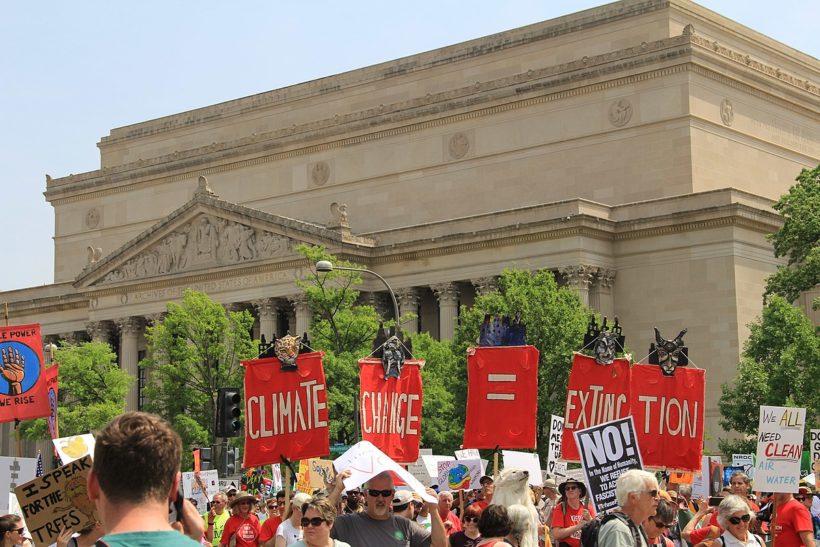
By BROOKE NEPO
The most recent UN Intergovernmental Panel on Climate Change (IPCC) report highlights the future consequences of a warming planet if fundamental change is not achieved. If greenhouse gas emissions continue at their current rate the earth’s atmosphere will heat up by as much as 2.7 degrees Fahrenheit over preindustrial levels by 2040. To prevent this, the report indicates that greenhouse gases must decrease by 45% from 2010 levels by 2030 with a goal of 100% by 2050.
Indeed, this is a challenge requiring a significant transformation of the world’s energy systems, from fossil fuel dependent energy to alternative energy sources.
Earlier this year, French President Emmanuel Macron cautioned the U.S. Congress stating that there is no “Planet B.” Our personal and planetary health serve as our most valuable possessions. Action must take place or nonreversible damage is highly likely to occur. With a warming planet comes more floods, heat stress, drought, intense storms, changes in air pollution, and the proliferation of disease vectors. Young children, women, the elderly, the indigent, and individuals with chronic conditions and disabilities are populations at risk to be adversely affected by a changing climate. In 2014, the World Health Organization (WHO) projected that between 2030 and 2050 there will be an additional 250,000 potential deaths each year due to the implications of climate change. The powerful combination of heat and humidity creates physically intolerable conditions for humans. All of this threatens to undermine global health and security.
To prevent the deleterious impact climate change would bring to our economy, health, and national security, consider the status of the current carbon tax. The latest UNPCC report and recently minted 2018 Nobel Memorial Prize in Economic Science recipients William D. Nordhaus and Paul Romer indicate that the pricing of carbon to control carbon emissions and mitigate climate change would have a major impact. More than 40 governments worldwide have priced carbon by instituting either a direct tax on fossil fuels or a cap and trade program. A carbon tax imposes a fee on fossil fuel burns, including coal, oil and gas, to discourage the use of these fuels. The Organization for Economic Cooperation and Development (OECD) found that among 42 well-developed economies, the average carbon price was nearly $8 per ton, which is far lower than the price needed to alleviate climate change.
Given the disparity between the current carbon price and the price needed to discourage the use of fossil fuels, look to Canada and its recent experience. In October, Prime Minister Trudeau announced the implementation of a carbon tax in Canadian provinces. The tax will be levied on industrial polluters in Ontario, Saskatchewan, Manitoba, and New Brunswick. The Canadian carbon tax will generate $2.8 billion (Canadian) in revenue in 2019, and by 2022-2023, raise an additional $5.6 billion. In 2018, the initial carbon price will be $20 per metric ton and increase to $50 by 2022. Canadian taxpayers will realize a direct financial reward of approximately $250 to $600 per household in 2019.
Will the Canadian carbon tax fully absolve all the effects of climate change? Certainly not, but the Canadian approach is an invaluable start for all major countries to consider. Dr. Nordhaus acknowledges a lack of government involvement as the primary obstacle to broadening public support for a carbon tax. However, he remains optimistic that change over time can and will occur. Action now will lead to less extreme measures in the future. It is incumbent upon the public to press leaders of all levels of government toward a sound and sustainable energy policy that protects the planet and the public’s health.
Brooke Nepo is a graduate of Stony Brook University, where she received a Master of Public Health and a Master of Arts in Public Policy. She currently resides in Washington, D.C., and enjoys hiking, kayaking and paddle-boarding in the Adirondacks in her spare time.



Leave a Reply